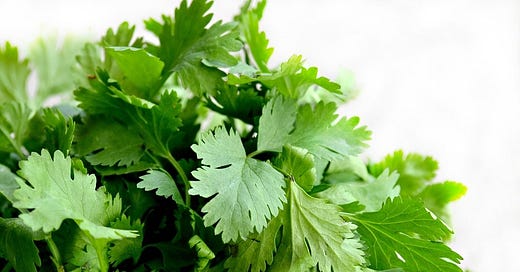One common move made in the moral realism debate is to appeal to parallel case of gastronomic realism. That is, try to say that a lot of arguments that work in favor of one work for the other as well. Gastronomic realism is the view that claims like “asperges taste bad” are objectively correct. Substack’s own Lance Bush makes reference to gastronomic realism frequently. Is this valid? Is this parallel a counterargument to moral realism?
The Bad Argument
In the original paper that introduced gastronomic realism, it’s characterized as a “reduction ad absurdum”. But is it really? Why couldn’t there be facts about what is and aint good food? Where is the absurd part? Perhaps gastronomy is just too silly, specific, and contingent for there to be facts about. But if that really is the objection, it’s purely fallacious. Because gastronomic realism is clearly just a special case of aesthetic realism. It really should not matter by what sense organ an experience is had for it to count as aesthetic. Many people gladly bite the bullet on aesthetic realism. Including the entire Catholic Church. Just making it sound more silly by giving a special term to one subgroup of aesthetic facts is not an arguments. I could do the same for moral facts you see: Canemduceridic facts are fats about whether or not you should walk the dog. Imagine believing in canemduceridic facts.
The Good Argument
But there might be a more valid reason to single out gastronomic facts from among aesthetic facts. It is after all one area of aesthetics where people most and most obviously disagree, and where their disagreements seem most irreconsilable. Most people can enjoy a Rembrandt painting. And when someone cant’t—and isn’t blind or something—it is much easier to chalk it up to ignorance or disinterest. But my mom really, fundamentally, does not like spicy food. I do. There seems to be a real disagreement there. It’s really hard for me to say that she is factually wrong here. And if that doesn’t suffice for you consider the case of cilantro. To 4-14% of people, it tastes like soap, probably for mostly genetic reasons. Do these people have genetics that makes them wrong about the taste of cilantro? And that is not the only way that people taste of food changes for completely un-intelectual, but rational, reasons. Going sick after attending a certain restaurant can ruin the food you ate there forever, even if you don’t intellectually attribute the sickness to that meal.
Could you still maintain aesthetic realism in the face of these considerations. Perhaps you can make your life easier by weakening the sense in which aesthetics is objective. You only assert that there is an objectively correct response to a certain experience of eating the food. You concede that to people may have an completely experience of eating the same cilantro dish, and the person that tastes soap is correct to be disgusted, while the person that doesn’t would be wrong to be. I think at least this type of gastronomic realism is entailed by moral realism, just because so many arguments apply in parallel.




Gastronomic realism is obviously true. If someone says he enjoys eating dogshit more than going to a world-renowned restaurant, then every reasonable person agrees he is messed up. Moreover, molecular science can actually predict which flavours will go well together, and it works! Instead of being used as a reductio ad absurdum against moral realism, it should be used as a model.
The coriander (WTF is cilantro LOL) example just shows that it's complicated, just like moral realism is (if true). The some-people-like-spicy-food example is like how some people prefer classical and some people prefer baroque, but someone who says mumble rap is better than Bach or Mozart is still a mental defective unfit for society. It's not like aesthetic theory doesn't have vocabulary for this.